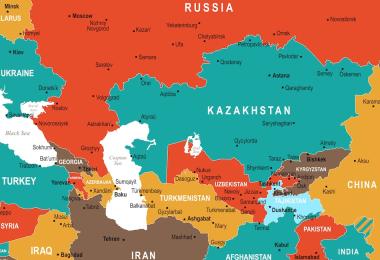The German sommelier scene is unquestionably one of the most dynamic in the world. The wine lists are traditionally more international than those in other major winegrowing countries, despite the fact that the restaurant sector has seen a real boom in German wine in the restaurant sector. This diversity is cultivated further, especially in wine hot spots, primarily through wine recommendations to suit the menu, which are crucially important at Germany's best fine dining addresses: 70% to 80% of diners allow the sommelier to recommend the best wines for the menu. Many do not even look at the list first.
In Germany, the wide-ranging natural wine sector is also growing in importance.
Justin Leone, Tantris, Munich
Since 2011, the Canadian-born sommelier has been at Tantris, which has been under the culinary management of Hans Haas for 25 years and is consistently at the top of Munichʼs gourmet scene. Leone would probably be a musician in the US today if his love of Pinot Noir had not led him to Burgundy. He is now known as the greatest Burgundy connoisseur among sommeliers working in the restaurant sector. His second love is Riesling, and he is also open to the natural wine scene without being fanatical about it. He describes himself as a fan of classic cuisine using the best possible ingredients and is not afraid to recommend classic wines to accompany it, his particular passion being mature wines. The wide range of vintages available at Tantris, which has approximately 2,000 different items in its cellar (40,000 to 50,000 bottles), means that all possibilities are open to him when he makes his recommendations.
Willi Schlögl, Cordobar, Berlin
Originally from Styria, in Austria, Willi Schlögl manages Germany's hippest wine bar in central Berlin, where the gastronomic wine pulse of Germany has been beating for two years. He does not describe himself as a sommelier, but rather as the Chief Executive Host, and he favours German and Austrian wines, while not forgetting Burgundy and the Loire Valley. He is making an important contribution, alongside colleagues like Sebastian Georgi in Cologne, to the renaissance of Moselle wines on the scene. There is hardly a bar in Germany – with the possible exception of Sansibar on Sylt – where more high-quality wine is drunk. At the Cordobar, high-quality does not have to mean famous or expensive. The Cordobar now has the power to make a winery a hot tip, at least on the wine scene. In the background is another top sommelier, Gerhard Retter, the co-owner of the Cordobar. However, he does not appear behind the bar, as he runs the Fischerklause am Lütjensee outside Hamburg with his wife Claudia.
Billy Wagner, Nobelhart & Schmutzig, Berlin
Rebel and figurehead of the natural wine scene. The two descriptions are not entirely fitting, but Billy Wagner likes to cultivate his image which starts with his appearance: long robes, a bushy red beard and alert, sparkling eyes. Behind the look is one of the most competent sommeliers around, with a distinct flair for wine and food pairing. He is also a highly professional restaurateur who has run his own restaurant, Nobelhart & Schmutzig in Berlin, for just over a year. Guests sit in a U around the open kitchen, with Billy Wagner and his team advising on accompanying drinks. The wine selection on the menu is divided into three sections: fruit wines, terroir wines and signature wines, as well as beers, sparkling fruit wines and many more. The former sommelier at Rutz in Berlin loves variety and diversity, and is able to convince his guests of this by using simple language to describe even less easily accessible drinks. Above all, he is a visionary with a radical regional food concept, which his chef Micha Schäfer also lives by and puts into practice on the plate.
Stéphane Gass, Schwarzwaldstube, Traube Tonbach, Baiersbronn
He is the most long-standing of the sommeliers in this ranking: Stéphane Gass has been a sommelier at the Schwarzwaldstube in Traube Tonbach, an institution on the German gourmet landscape, since 1991. The Frenchman from the border region of Lorraine previously worked at major restaurants in his home country (Au Crocodile and Le Buerehiesel in Strasbourg, and Le Louis XV in Monaco,), before moving to the Black Forest, where he selects suitably classic wines to accompany the extremely precise, classic cuisine of Harald Wohlfahrt. His selection of French wines in particular is exceptional and is not limited to the big names. Some 36,000 bottles are stored in the wine cellar. Those interested in hot tips from the Rhone Valley or Burgundy in particular will get their money's worth.
Jürgen Fendt, Hotel Bareiss, Baiersbronn
Jürgen Fendt has won more awards than any sommelier working in the restaurant sector in Germany. He has not only won the Trophée Ruinart Deutschland several times and represented Germany a total of three times at the Sommelier World Championship, but has also been honoured by various gourmet guides. He has been the sommelier at Bareiss for almost 20 years and has always remained true to his personal style. Just as Claus-Peter Lumpp shapes the style of cuisine, the wine list, containing over 1,000 items, is the work of Fendt. He has a particular passion for Riesling and Pinot Noir, something Fendt makes no secret of. It is therefore no surprise that he has started his own wine production with his wife, Maren, in Baden and on the Moselle that has now grown to over 10,000 bottles a year. The style of the wines naturally says something about his style as a sommelier: balanced wines that can definitely be described as classic, with a moderate alcohol content and a fruity taste.
Marie-Helen Krebs, Luce d’Oro, Schloss Elmau, Elmau
Schloss Elmau enjoyed international fame even before the G7 summit in May 2015. For many, the castle, surrounded by the Bavarian Alps, is Germany's most beautiful and best hotel. Krebs has been the head sommelier and restaurant manager of the gourmet restaurant, Luce d’Oro, since 2007. She is also responsible for the wine list and for purchasing the wine for the numerous other restaurants in the extensive hotel complex. Krebs defines the style of the wine list: confidently classic, yet varied and with a focus on a certain amount of bottle ageing. She favours continuity, but only as long as the
quality remains at the highest level. For her, stylish wine enjoyment always has something to do with maturity and in recommending wines to accompany the menu, as she regularly demonstrates. Inveterate drinkers of young wine will only find the odd 2015 wine on the lists, while a series of remarkable vintages of single-vineyard wines are on offer, despite the fact that the storage facilities at the castle are limited. She is probably the best stock manager among the top German sommeliers.
Marco Franzelin, Vendôme, Schloss Bensberg
He has developed from being one of the rising stars of the past few years into a heavyweight on the scene. He has been head sommelier alongside Germany's celebrity chef Joachim Wissler at Vendôme since 2013, and before that was at Haerlin at the Fairmont Hotel Vier Jahreszeiten in Hamburg. He is responsible not only for the wine lists at the restaurants of Schloss Bensberg, but also for purchasing banquet wines for the Althoff Hotel Collection which has an exclusive range of top hotels throughout Germany. He is a master of wine and food pairings because he also has a keen sense of the taste of the guests, alongside his own feeling for wine and food. When compiling the wine list, quality is the only factor, rather than name or origin, which is unusual for a restaurant of the class of Vendôme. His wine selection is extremely varied, both stylistically and in terms of origin.
Bärbel Ring, Söl'ring Hof, Sylt
From student teacher to sommelier with Johannes King, at the best restaurant (and hotel) on Sylt. What started as a student job in the restaurant business turned into a vocation. Bärbel Ring has been the sommelier at Söl’ring Hof in the dunes of Rantum on Sylt since 2008. She is a leading player on the natural wine scene on Germany's gourmet island of Sylt, without allowing herself to be completely taken over by this movement. Bärbel Ring remains open to different wine styles, making her wine list and accompanying wines some of the most diverse in the country.
Nina Mann, Victor’s Fine Dining by Christian Bau, Perl-Nennig
Despite her young age – she’s not yet 30 – Nina Mann has taken over as head sommelier at one of the best restaurants in Germany. She was already a rising star in the sommelier firmament at her last job at the Zirbelstube at the Althoff Hotel am Schlossgarten in Stuttgart, before moving in March this year to Victor’s Fine Dining by Christian Bau at Schloss Berg in Perl-Nennig, near the border of Luxembourg.
As she herself says, her first job as a sommelier with independent responsibility at Germany's most famous Japanese restaurant, Nagaya in Düsseldorf, was crucial for her career: “There I learned how important passion can be.”
Benjamin Birkholz, Restaurant Jörg Müller, Sylt, and Melanie Wagner, Restaurant Schwarzer Adler, Oberbergen
Although they are not in the spotlight to the same extent as some of their colleagues, they both have access to probably the best-stocked wine cellars in Germany, which are unparalleled in particular in terms of great Bordeaux wine vintages. They do not get in each other's way: he, Benjamin Birkholz, works on Germany's most northerly holiday island, Sylt, in Jörg Müller's restaurant. Benjamin Birkholz is the son-in-law of Jörg Müller, chef and owner of the restaurant that bears his name. Every week he tastes wines that others dream of tasting their whole lives, and so he has become a connoissuer of mature Bordeaux wines (as well as mature Champagnes) at a relatively young age. However, the main focus of the 1,720-item wine list is German wines, especially Riesling. Melanie Wagner has been the sommelier at Fritz Keller's Schwarzer Adler restaurant in the Kaiserstuhl hills, deep in the south-west of Germany, for over ten years. There are currently 100,000 bottles stored in the 120-metre long tunnels. The youngest Bordeaux vintage on the list is 2003 and the oldest is 1914. The restaurant's wine list currently includes around 2,600 items.








